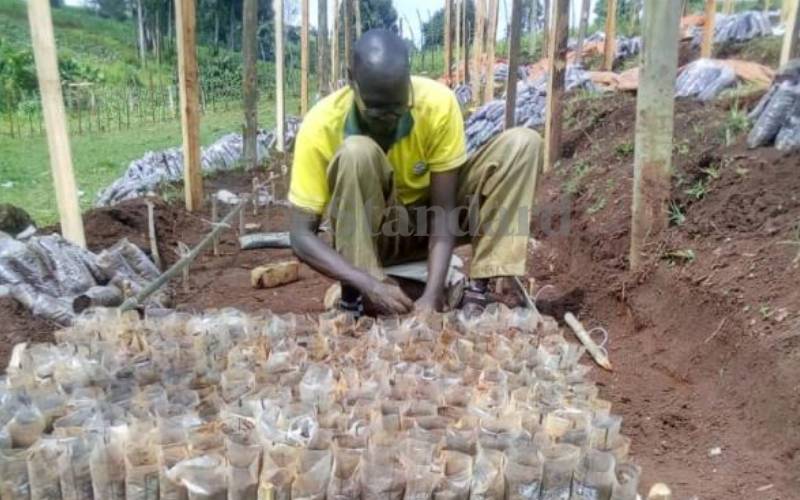×
The Standard e-Paper
Kenya’s Boldest Voice

Samuel Kimtai Chemos tending to seedlings at nursery. [Martin Ndiema, Standard]
They hanged their boots and turned over a new leaf. Their blazing guns went silent, running battles with security agents ceased, and calm returned to the once volatile area.







